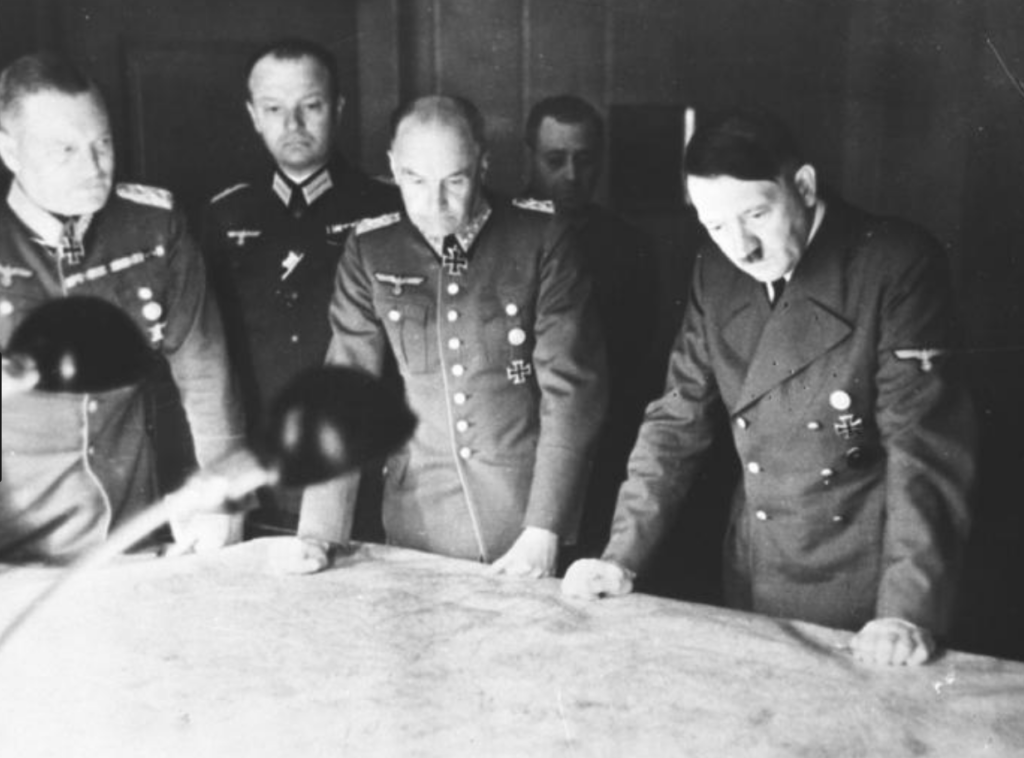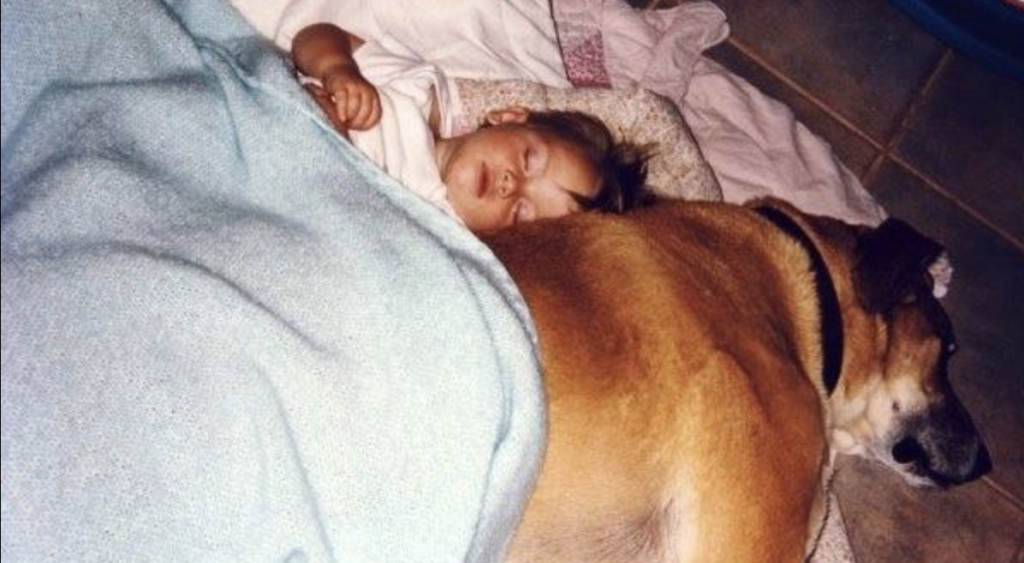
In May of 1943, Adolph Hitler had to face that the Nazis could no longer hold Sicily. Hitler, relunctantly and uncharacteristically, agreed to an evacuation of the Nazi troops from Sicily to the Italian mainland, but was told that the evacuation would be difficult because several of the ferries that might take the troops to the mainland had been destroyed. Hitler told his generals, “the decisive element is not the ferry, but the will” and “Where there is a will there is a ferry” (137). In another discussion with his generals in December of 1942 about the situation in the Stalingrad encirclement—100,000 troops were surrounded by Soviet forces and quickly starving and freezing to death—he was told that some of the troops were simply dropping dead of exhaustion. He deflected the question of whether there should be a fighting retreat (or even a set of strategic small retreats) to the question of medals. The connection seemed to be that soldiers were dying because they weren’t sufficiently motivated to continue living, something medals would help. He clearly believed that the will could conquer anything, from freezing to death to getting across a strait.
This belief, that the will could triumph over everything, meant that he fired anyone who didn’t seem to him to have sufficient will. This belief in the power of the will was a narrative: people of a certain kind (good people with sufficient will) can triumph over anything, including the lack of a ferry, or starvation and freezing temperatures. Hitler’s decision-making about war was always within that narrative.
Clausewitz famously said that war is politics by other means. If war is politics, then politics is war, and figures ranging from Mao Tse Tung to Steve Bannon have made exactly that argument. Of course, they don’t mean it is literally war, but that the stories we tell about politics are the same stories we tell about war. Many people have argued that we shouldn’t think of politics as war, and I don’t entirely disagree, but I have a different question: what kind of war? What story of war are we telling that we think is the story of politics?
Is the story about groups who are destined to go to war, who cannot possibly co-exist, or about groups who have conflicting material needs that might be negotiated? Is the story that our group has already is already under attack by an enemy determined on our extermination, and so we are in an extraordinary situation in which we are unconstrained by normal notions about moral behavior? Or, is the case that we are bargaining with another group about material goals, and threatening to go to war will enhance our bargaining situation, and so we have one narrative for the people bargaining (this is all a bluff), and another for the general public (we need to go to war)?
Not all wars are the same, not just in that they have different costs and causes, but they are very different kinds. There are limited wars, oriented toward very specific goals, or intended as one of the pressures brought to bear while bargaining. There are total wars, wars of extermination, preventive, pre-emptive, proxy. There are a lot of kinds of wars. So, if we are saying that politics is like war, whether we imagine war as limited and temporary violence or as extermination of the other matters tremendously.
Democracy is a method of government that can withstand passionate fighting among partisans, but when politics is seen as a war of extermination of all but one political position, then democracy is exterminated. This book is an attempt to persuade readers of that claim, but also to explain how and why it is that we move from seeing conflict and disagreement as beneficial to requiring extermination. That part of the argument is more complicated.
By “politics,” people usually mean the policies that are enacted by political figures, and the rhetoric we have about those policies. And, perhaps paradoxically, or perhaps not, the kind of political discourse—that is, rhetoric—we have about whether to go to war can help or hinder effective deliberation about war, whether and how to go to war, how to conduct it, whether to continue it. That is, if we see political discourse itself as war, then what kind of war we think it is (a war of extermination, bluffing, strategic) constrains or even prohibits effective political deliberation about whether we should go to war.
The argument I will make in this book is that how we think about discourse (which I’ll call rhetoric) and how we think about war are mutually inflecting. Take, for example, Hitler. Hitler thought about rhetoric as a kind of war—a war of extermination of opposition points of view that he would win through a combination of seduction, trickery, intimidation, jailing, shooting, sheer will, and success. That rhetoric worked tremendously well with his base, and reasonably well with the German public from 1933 until 1944. In other words, it worked as long as he was winning; it failed when he wasn’t. Equally important for the purposes of this book, that’s how he approached the deliberations with his generals about how to conduct the war. He bribed, lied to, intimidated, fired, and shot his generals until he had a loyal cadre who would support him completely—the same goal he had about Germans in general. He believed that politics and war should both be approached by having a clear vision of and fanatical commitment to in-group domination, as well as expulsion or extermination of all people not fanatically loyal to that vision.
And, because of those beliefs about belief, rhetoric, and war, he lost the war.
As an aside, I’ll mention that there are lots of other examples of leaders in both business and politics whose insistence on only listening to people with fanatical commitment to the vision led them to disaster, whether it’s the disaster of the USSR, or of Theranos.
We like to believe that evil people, and I think Hitler was evil, know that they are evil. But they don’t. Hitler thought he was on the side of Good. He sincerely believed that the world was facing an apocalyptic battle between Good (Aryans) and Evil (Jews and their stooges and tools). And, because he was on the side of Good, anything he did was good. That’s Machiavellianism—the means (even if they’re actions or policies we would normally condemn as immoral) are transmuted to morally good if our ends are good. But we all think our ends are good. Hitler’s weren’t, but he thought they were.
There is a long battle in western European philosophy grounded in what some (including me) would argue is a misreading of Plato: philosophy is the study of what is, and rhetoric is the study of what people can be persuaded is. Since Plato employed Aristotle to teach rhetoric in his Academy, I don’t think Plato was as dismissive of rhetoric as some philosophers would like to think. But, in any case, there is some justice to the characterization of rhetoric as the study of what and how people can come to believe that a particular way of seeing the world, a restricted range of our policy options, this representation of that group, what it means to be loyal—that is, how people come to believe. After all, we don’t go to war because of what the world is, but because of what we believe the world to be.
And we’re often wrong.
While we aren’t Hitler, we’re all people who engage in self-justification, self-servedness, short-term grasping, and in-group favoritism, and those tendencies don’t help us make good decisions. Those impulses constrain our abilities to listen to others, treat others fairly, imagine other experiences, reflect effectively on our own commitments, reason usefully about our policy options, consider unpleasant data, hold ourselves to the same standards we hold others. This book is about how and why we do that, especially when it comes to the question of war.

